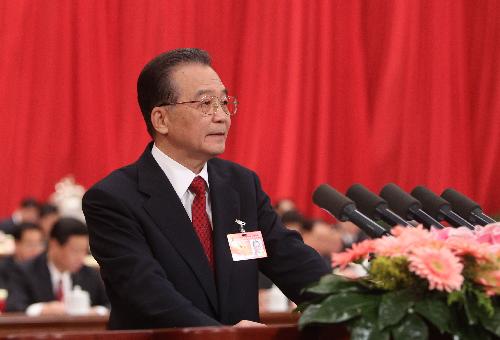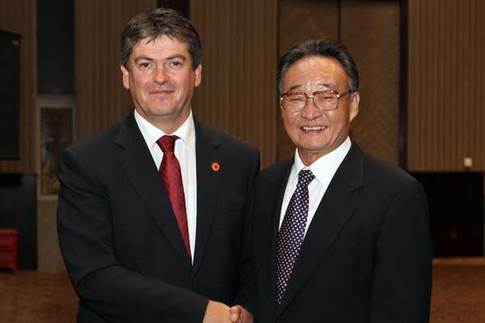After calls by Internet users prevented a farmer from being wrongly sent to prison for life earlier this year, moves to make the provincial court system more open to the public gathered strength, said Zhang Liyong, head of the Higher People's Court of Henan province and a deputy to the National People's Congress.
Starting from this year, the province's court system will broadcast online as many trials as possible to put judges under public scrutiny, Zhang said.
In the past year, two controversial cases in Central China's Henan province attracted nationwide attention and eroded the judiciary's credibility.
One was the case of Zhao Zuohai, a farmer in Zhecheng county of Henan, who was found to have been wrongly imprisoned for 10 years. He was sentenced to life imprisonment for murder, but his alleged victim returned home last year, proving Zhao's innocence.
Zhao was paid 650,000 yuan ($99,000) in compensation for the losses he incurred: his wife left him, his children were adopted.
In the other case, another farmer in the province's Pingdingshan, Shi Jianfeng, was sentenced to life in prison in January for avoiding paying expressway tolls worth almost 4 million yuan with fake military vehicle plates.
The unreasonably high toll amounts and the harsh ruling aroused Internet discussion, which prompted the farmer's younger brother, Shi Junfeng, to turn himself in with new evidence.
The younger Shi told the media in January that the attention from the Internet made him feel more confident about his chances of saving his brother from being confined for life.
The police are now re-investigating the case, and the province's Higher People's Court has announced that the retrial will be broadcast live for public supervision.
Zhang Liyong, as the head of the provincial court system, believed the reasons behind the two incorrect rulings are that many judges in China still tend to presume the suspects are guilty, and some judges have not fulfilled their responsibility to check the facts before finding an accused guilty.
If there are loopholes in a case or not enough evidence to prove the suspect's guilt, judges should find the person innocent. But in reality, as the last link of the judicial system, some judges make compromises with prosecutors, presume the suspect is guilty, but hand down a lighter sentence, he said.
"Police make the dish (investigate criminal cases and find the suspects), prosecutors serve the dish (verify the facts and approve arrests), and the court eats the dish," Zhang said.
"But often the judges devour the dish without checking whether it is clean or poisonous."
This year, the Henan Higher People's Court is planning to broadcast at least 5,000 cases live on its website, according to Chen Haifa, director of the website office of the court.
But it will not broadcast cases that involve privacy, juveniles and State secrets, Chen said.




